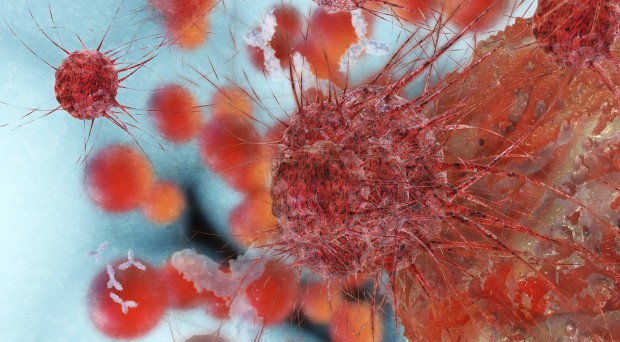
 Dr Domenico Coppola has both clinical and teaching responsibilities, and is a participating member of the Gastrointestinal Division at the Moffitt Cancer Center, USA. He developed the Moffitt Cancer Center Pathology Consultation Service and is also contributing to Total Cancer Care.
Dr Domenico Coppola has both clinical and teaching responsibilities, and is a participating member of the Gastrointestinal Division at the Moffitt Cancer Center, USA. He developed the Moffitt Cancer Center Pathology Consultation Service and is also contributing to Total Cancer Care.
What inspired you to study cancer?
Cancer affects every human being. It’s a major cause of morbidity and mortality and affects millions of individuals. Finding the cure for cancer requires the understanding of the mechanisms regulating tumor cells and of the changes responsible for transformation.
Learning that heredity, environment, lifestyle and behavioral exposure may all play a role in carcinogenesis has been the driving force in trying to understand more about these processes. Ultimately, the goal is the cure of cancer and for that, everyone’s contribution is essential.
Has the incidence of cancers increased in the last 25-30 years?
In men, the five most common sites of tumor are lung, prostate, colorectum, stomach and liver. Among women it’s the breast, colorectum, lung, cervix and stomach. The highest incidence seems associated with high-income countries.
The change in incidence is variable and depends on changes in hereditary, environmental, lifestyle and behavioral conditions. While the incidence of some tumors is decreasing, that of others is increasing. For example, in women the incidence of cervical cancer has rapidly declined, probably as result of cervical PAP (Papanicolaou) smear screening. Conversely, the incidence of breast cancer is increasing.
And the increased incidence in lung cancer for women is clearly linked to the fact that they have became smokers. This is a clear example of changes in incidence due to modification of behavioral conditions.
What has been the single most important technological advancement that has helped cancer research?
In more recent years the capability of producing knock-out and knock-in mice as well as the discovery of Next Generation Sequencing have greatly advanced cancer research.
In the past, the polymerase chain reaction (PCR) has provided a new tool for investigating the molecular biology of cancers. In more recent years the capability of producing knock-out and knock-in mice as well as the discovery of Next Generation Sequencing have greatly advanced cancer research.
Where do you think the future cure/cures for cancer will come from?
For patients with cancer the future cure will come from ‘Targeted therapy’. As we discover the molecular alterations driving cancer progression and as these alterations become ‘druggable’ we will have control of cancer.
What are some barriers faced by cancer research today?
Lack of governmental funding is the most important barrier. The funding for research has decreased exponentially over the years. Some of the researchers are demoralized. Most importantly, the new generation of researchers is at danger. Without grant monies it is difficult to train the researchers of the future and we will have a less competent researchers as students will be attracted by other, better supported, disciplines.
Could we eradicate cancer?
The defeat of cancer will come from prevention. As we become more knowledgeable about the initial molecular alteration inducing carcinogenesis and on the etiologic factors that triggered it, we will be able to make modifications to prevent such triggers or at best to identify the patient that were subjected to it (early diagnosis).
Kalpana Ramakrishnan
Prior to joining BioMed Central, I completed a PhD in Cell and Molecular Biology at the University of Illinois at Chicago.
Latest posts by Kalpana Ramakrishnan (see all)
- Quiz: Find out how much you know about cancer research - 9th October 2015
- Cancer research in the East and West: an Editor Q+A - 8th October 2015
- The team science approach to fight cancer - 8th October 2015
Comments